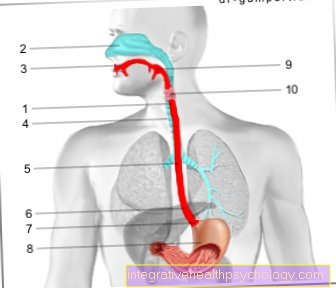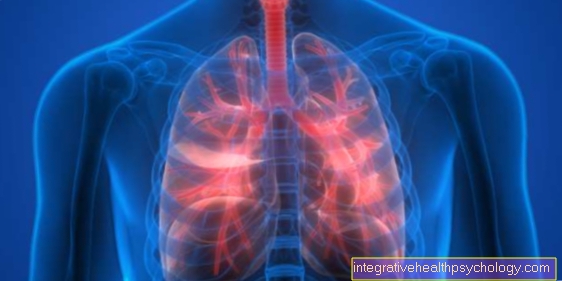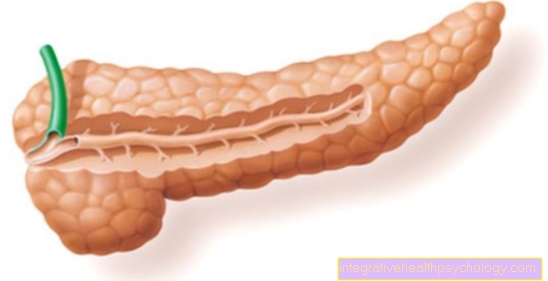Esophageal cancer symptoms
All information given here is only of a general nature, tumor therapy always belongs in the hands of an experienced oncologist!

What are the symptoms of esophageal cancer?
The symptoms of esophageal cancer appear very late and are usually very unspecific. Difficulty swallowing (dysphagia) in particular is a fairly typical symptom, but only occurs in a late stage of the disease. Since the esophagus is a very elastic hollow organ, the difficulty swallowing only occurs when the tumor has already narrowed by more than half the inner diameter of the esophagus. A little earlier, in some cases, increased salivation (hypersalivation) can be indicative.
Patients rarely complain of pain when swallowing (odynophagia). The pain comes less from the tumor itself than from an accompanying inflammation of the esophagus (esophagitis), which occurs when the tumor irritates the surrounding mucous membrane.
If the tumor is larger, the food can build up in front of the constriction, causing a feeling of pressure. If the food is vomited after a while, the feeling of pressure typically disappears.
Especially with tumors located high up, food can flow back into the oral cavity (regurgitation). Particularly at night there is a risk that the chyme will be inhaled into the lungs and then dangerous pneumonia (aspiration pneumonia) will occur.
Many of these symptoms also occur in throat cancer.
Learn more about this at: What symptoms indicate throat cancer?

- esophagus
(Neck section) -
Esophagus, pars cervicalis - Nasal cavity - Cavitas nasi
- Oral cavity - Cavitas oris
- Windpipe (approx. 20 cm) - Trachea
- esophagus
(Chest section) -
Esophagus, pars thoracica - esophagus
(Abdominal section) -
Esophagus, pars abdominalis - Stomach entrance -
Cardia - Stomach body -
Corpus gastricum - Throat -
Pharynx - Thyroid -
Glandula thyroidea
You can find an overview of all Dr-Gumpert images at: medical illustrations
There may continue to be dull pain behind Sternum (retrosternal pain) occur in the Chest (thorax) and the move can radiate.
In the late stages it may be that food intake is no longer possible, so that patients lose a lot of weight. To make matters worse, the tumor in itself a Weight loss (tumor cachexia), so that adequate nutrition for the patient is the most important goal of therapy.
If the late-stage tumor extends this far into the neighborhood, it can affect the nearby one Recurrent nerve (recurrent nerve), which controls the vocal cord function, attack and so on hoarseness to lead.
Also the nerve that controls the function of the diaphragm (Phrenic nerve), can be damaged by the tumor, so it may become permanent hiccup (Singultus) can come.
If the tumor is already in its terminal stage, the tumor mass can cause it to become significant Pain come. In particular are Bone metastases known for causing particularly severe pain. These must be treated particularly consistently with strong joke drugs.





























